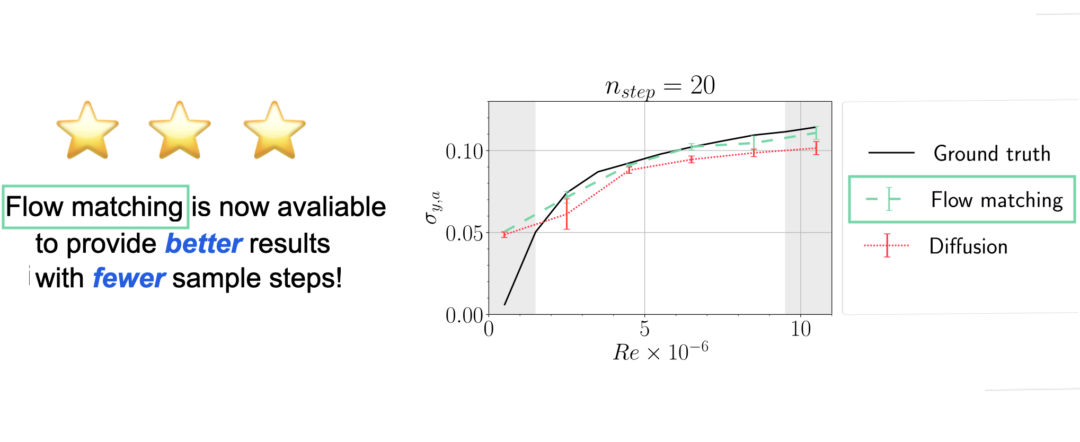We have updated our diffusion-based airfoil project with flow matching https://arxiv.org/abs/2312.05320! It’s clearly better: an improved distribution with fewer iterations. Try it for yourself in our new Jupyter notebook:
https://github.com/tum-pbs/Diffusion-based-Flow-Prediction/blob/main/flow_matching.ipynb
Flow Matching: We aevaluate this emerging generative modeling variant in comparison to regular diffusion models. The results demonstrate that flow matching addresses the problem of slow sampling speed typically associated with diffusion models. As such, it offers a promising new paradigm for uncertainty quantification with generative models.
For completeness, here’s the abstract of the full paper: Leveraging neural networks as surrogate models for turbulence simulation is a topic of growing interest. At the same time, embodying the inherent uncertainty of simulations in the predictions of surrogate models remains very challenging. The present study makes a first attempt to use denoising diffusion probabilistic models (DDPMs) to train an uncertainty-aware surrogate model for turbulence simulations. Due to its prevalence, the simulation of flows around airfoils with various shapes, Reynolds numbers, and angles of attack is chosen as the learning objective. Our results show that DDPMs can successfully capture the whole distribution of solutions and, as a consequence, accurately estimate the uncertainty of the simulations. The performance of DDPMs is also compared with varying baselines in the form of Bayesian neura networks and heteroscedastic models. Experiments demonstrate that DDPMs outperformthe other methods regarding a variety of accuracy metrics. Besides, it offers the advantageof providing access to the complete distributions of uncertainties rather than providing a set of parameters. As such, it can yield realistic and detailed samples from the distribution of solutions. We also evaluate an emerging generative modeling variant, flow matching, in comparison to regular diffusion models. The results demonstrate that flow matching addresses the problem of slow sampling speed typically associated with diffusion models. As such, it offers a promising new paradigm for uncertainty quantification with generative models.

